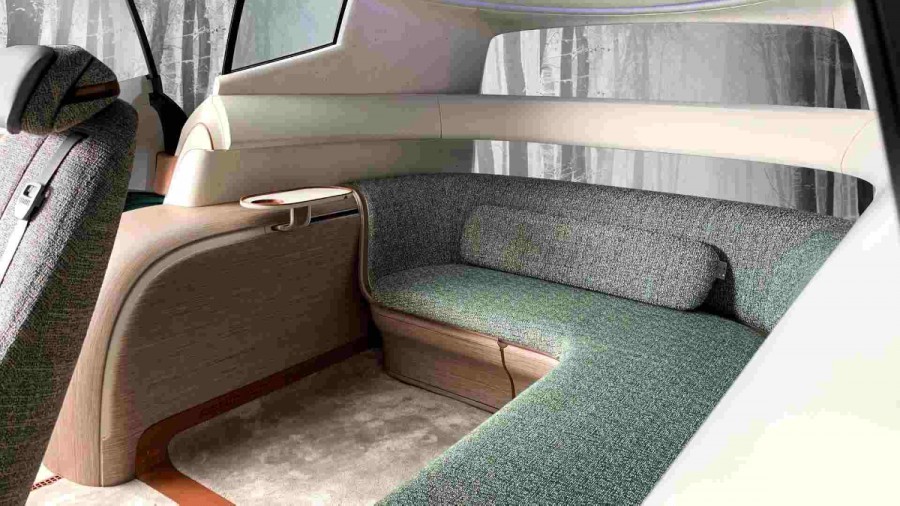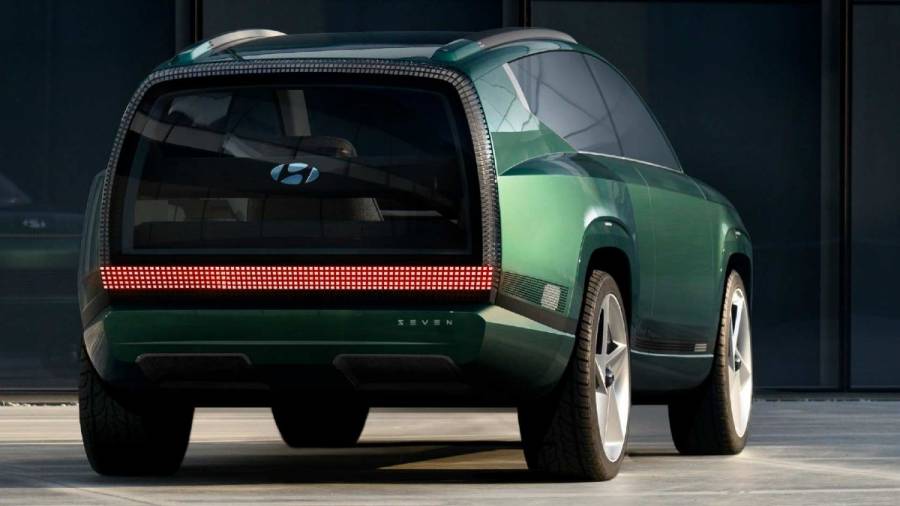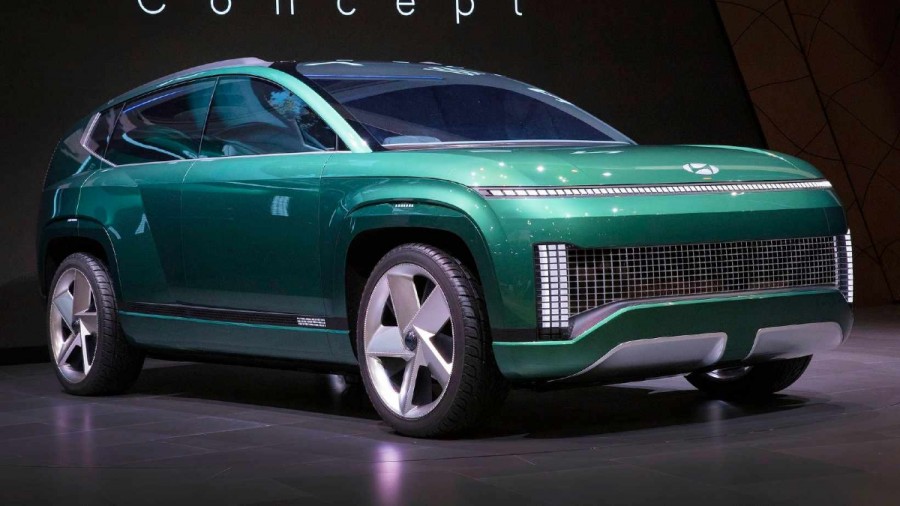Hyundai is making significant strides in the electric vehicle (EV) market with its upcoming Ioniq 7 SUV, recently spotted in its near production form during testing. This marks an important milestone for the South Korean automaker as it continues to expand its Ioniq lineup, which has been met with considerable enthusiasm.
The Ioniq 7 aims to offer a compelling blend of performance, luxury, and eco-friendliness, appealing to families and individuals looking for a spacious electric SUV. Built on Hyundai’s Electric Global Modular Platform (E-GMP), the Ioniq 7 promises to deliver impressive performance and efficiency.

This platform, which also supports the Ioniq 5, Ioniq 6, and Kia EV6, is known for its versatility and advanced technology. The Ioniq 7 is expected to feature a large battery pack, likely ranging from 76.1 kWh to 99.8 kWh, providing an estimated range of over 400 kilometers on a single charge. This makes it a strong contender in the electric SUV market, where range anxiety is a common concern.
The prototype of the Ioniq 7 was recently seen on German roads, giving us a look at what to expect from the production model. Although heavily camouflaged, the vehicle’s design elements are discernible. The front fascia features Hyundai’s distinctive Parametric Pixel design, with slim LED daytime running lights and vertically stacked LED headlamps.
The body design is characterized by clean lines, a blacked out roof, and flared wheel arches, which give it a robust and futuristic appearance. The rear profile is expected to be minimalistic, with sleek vertical LED taillights adding to its modern look.
Inside, the Ioniq 7 is designed to offer a luxurious and tech forward experience. The spacious interior can comfortably accommodate up to seven passengers, making it an ideal choice for families. High-quality, sustainable materials are used throughout the cabin, reflecting Hyundai’s commitment to eco-friendly design.
Key interior features include a curved 12.6-inch driver display, a 10.9-inch infotainment touchscreen, and a head-up display with augmented reality capabilities. Active ambient lighting and compatibility with the Hyundai Blue Link app further enhance the driving experience, providing convenience and connectivity.
Performance wise, the Ioniq 7 is expected to come in multiple variants, with options for both rear wheel drive (RWD) and all-wheel drive (AWD). The entry level RWD variant is likely to produce around 350 Nm of torque, while the higher end AWD versions could deliver significantly more power and torque, catering to different customer preferences and driving needs.

Production of the Ioniq 7 is scheduled to begin in July 2024 at Hyundai’s South Korean facility, with a global launch planned for the second half of 2024. This timeline positions the Ioniq 7 well to compete with other electric SUVs set to enter the market around the same time.
The Hyundai Ioniq 7 represents a significant step forward in Hyundai’s electric vehicle strategy. With its spacious and luxurious interior, advanced technology, and impressive range, the Ioniq 7 is poised to attract a wide range of customers looking for a sustainable yet high performing SUV. This vehicle not only underscores Hyundai’s commitment to innovation and sustainability but also strengthens its position in the rapidly evolving EV market.

